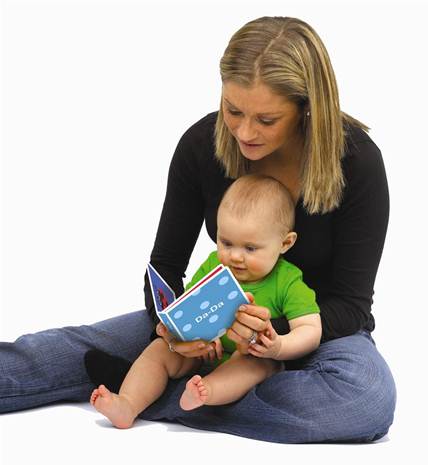What parents need to know about building a
brainy baby.
Max out cuddle time
Terrie E. Inder, M.D., a neonatal
neurologist at Washington University in St. Louis, studied premature babies and
the amount of negative stress they incurred (mostly due to medical procedures
like shots, changing of feeding tubes, etc.). Babies with the highest number of
stressors showed the most negative changes in frontal and temporal lobes, the
portions of the brain associated with emotional stability, planning and
language. Holding and soothing a baby, though, mitigated some of the effects of
stress. “The less stress and the more soothing, positive experiences—the more a
parent can hold and comfort a baby—the better for the baby’s brain
development,” says Inder.

What’s
the best way to boost your baby’s brain power?
Breastfeed
A Danish study published in the Journal
of the American Medical Association in 2002 found that IQ measured some
15-plus years after breastfeeding ceased was strongly correlated with the
duration of breastfeeding: The biggest gains in IQ were seen when babies were
breastfed for up to 9 months. “We know it’s best for brain development to
breastfeed a baby exclusively for the first four to six months. After that,
it’s age-appropriate foods plus breast milk until age 1,”says Michael
Georgieff, M.D., professor of pediatrics and a neonatal nutrition researcher at
the University of Minnesota in Minneapolis. The second best thing to breast
milk, though, may be formula with DHA and choline. Both of these nutrients are
important for brain development, says Georgieff. More studies are needed,
however, to understand if this addition to formula provides any long-term
benefits.
Focus on the relationship
A crucial foundation of intelligence is the
relationship an infant has with the people around him, says Amy Hunter,
L.I.C.S.W., assistant professor at Georgetown University Center for Child and
Human Development in Washington, D.C. If your baby babbles or blinks at you, do
it back. You’re encouraging trust, confidence and communication. Also, narrate:
“Mommy is peeling a banana. The banana is yellow. I’m cutting it into pieces
with a knife so you can eat it for lunch.” “It may feel ridiculous at first,
but you’re talking about an experience, what’s happening next and predicting
and explaining. This helps your baby develop language skills and make other
valuable brain connections,” says Hunter

Talk
to baby. At least 20,000 words per day will help her make lifelong connections
in her brain.
Brain 101
At birth, a baby’s brain contains 100
billion neurons— nearly all the neurons the brain will ever have. These
specialized cells transmit information throughout the body, but almost from the
beginning, the brain starts a pruning process; it builds connections with
use and eliminates connections when they aren’t used.